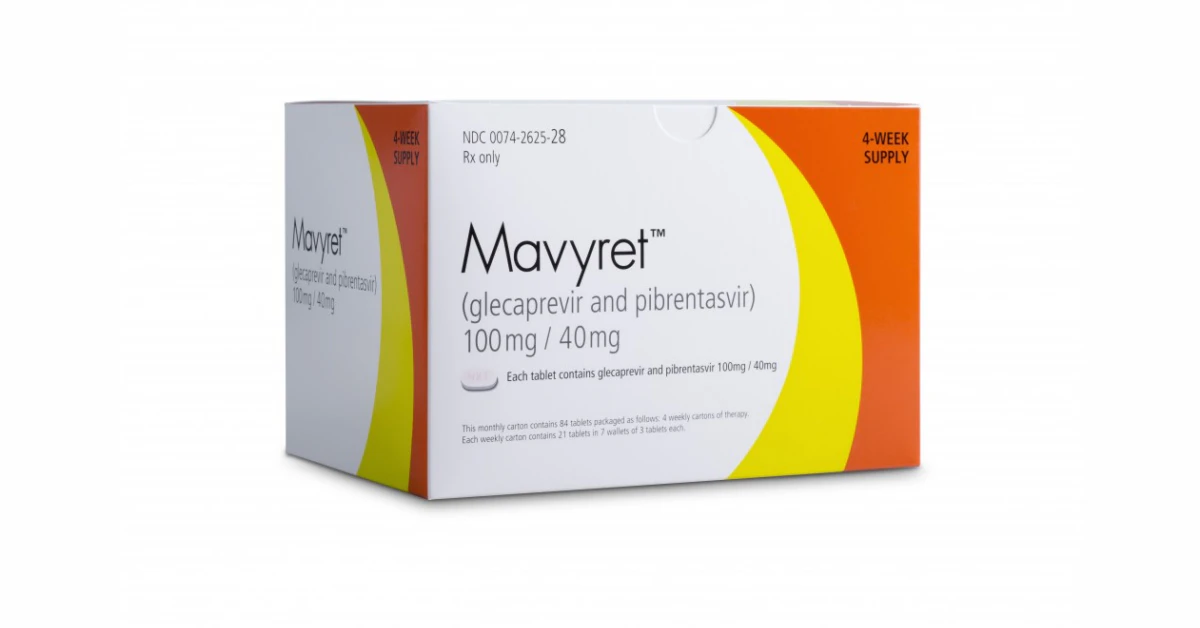Hey there—if you’ve just been prescribed Mavyret or are weighing the decision to start it, you’re probably wondering what kind of reactions your body might have. The short answer? Most people experience only mild symptoms like a headache or a little fatigue, but a small group can run into more serious liver‑related issues. Below, I’ll walk you through everything you need to know, from the everyday quirks to the red‑flag warnings, and give you practical tips on handling each one.
Grab a cup of tea, settle in, and let’s chat about Mavyret side effects. I’ll keep things straight‑forward, sprinkle in some real‑life stories, and point you to reliable sources when the science gets a little dense.
Quick Summary Table
| Category | Frequency (clinical trials) | Typical Severity | When to Seek Care |
|---|---|---|---|
| Headache | 13 % | Mild‑moderate | Persistent > 3 days or worsening |
| Fatigue | 11 % | Mild‑moderate | Interferes with daily tasks |
| Nausea | 8 % | Mild‑moderate | Vomiting or lasts > 5 days |
| Diarrhea | 6.5 % | Mild‑moderate | Dehydration or blood in stool |
| Itching / rash | 5 % | Mild‑moderate | Swelling or breathing trouble |
| Serious liver signs* | Rare | Severe | Dark urine, yellow skin, abdominal pain |
*Includes hepatitis B reactivation and other liver‑injury warnings.
How It Works
Mechanism of Action
Mavyret is a fixed‑dose combination of glecaprevir (an NS3/4A protease inhibitor) and pibrentasvir (an NS5A inhibitor). In plain English, these two agents swoop in on the hepatitis C virus (HCV) and block the enzymes it needs to replicate. When the virus can’t make copies of itself, the infection clears out—usually within 8‑12 weeks.
Why Side Effects Appear
Because the medication targets viral enzymes that live inside liver cells, your liver does a bit of extra “house‑keeping” while the drugs are on board. That hustle can trigger mild inflammation, which shows up as headache, fatigue, or nausea. Most folks notice these quirks early on, and they often fade as your body gets used to the regimen.
Common Side Effects
Headache & Fatigue
According to the FDA label (source), 13 % of patients report headache and 11 % notice fatigue. They’re usually mild, but they can feel like that “brain‑fog” you get after a long flight.
Quick tip: stay hydrated, keep a regular sleep schedule, and consider an over‑the‑counter pain reliever like acetaminophen if the headache is stubborn.
Nausea, Diarrhea & Upset Stomach
About 8 % of people feel a little queasy, and 6.5 % experience mild diarrhea. Taking Mavyret with food can soften the blow—most tablets are designed to be swallowed with a meal.
My friend Jess, who was on an 8‑week course, told me she kept a “gut‑friendly” diary: small crackers, ginger tea, and a probiotic capsule each morning. By week 3 the nausea had vanished.
Itching & Skin Rash
Itching shows up in roughly 5 % of users. If the rash stays localized and doesn’t swell, it’s usually harmless. However, any swelling around the face, lips, or tongue warrants an immediate call to your doctor—this could signal an allergy.
Serious Side Effects
Hepatitis B Reactivation
Here’s the big one: Mavyret carries a boxed warning for hepatitis B (HBV) reactivation. If you’ve ever had HBV, the virus can flare up during or after treatment, potentially leading to liver failure. That’s why doctors run a baseline HBV test before starting therapy and monitor you during and after the course.
According to a 2023 study in The Lancet Gastroenterology, HBV reactivation occurred in less than 1 % of patients but was severe when it did happen (study).
Signs of Liver Injury
Dark‑colored urine, light‑colored stool, yellowing of the skin or eyes, and sharp right‑upper‑abdomen pain are red flags. While these are rare, they require urgent medical attention. If you notice any of them, stop the medication and call your provider right away.
Severe Allergic Reactions
Swelling of the face, lips, tongue, or difficulty breathing is an emergency. Even though it happens in less than 0.1 % of cases, it’s better to be prepared than surprised.
Long‑Term Effects & After Stopping
Post‑Treatment Fatigue & Brain Fog
Some patients report lingering tiredness or “brain fog” for a few weeks after finishing Mavyret. In user‑generated data from Drugs.com, about 7 % mentioned depression and 6.8 % noted brain fog after completion. These sensations usually fade, but if they persist beyond a month, touch base with your hepatologist.
Monitoring After SVR12
SVR12 (sustained virologic response 12 weeks after treatment) is the gold standard proof that HCV is gone. Even after a clean SVR, doctors often recommend a final liver‑function panel at the 24‑week mark to make sure everything stays on track.
What About “Mavyret side effects after stopping”?
Overall, the drug’s half‑life is short, so most side effects resolve quickly once the tablets are gone. The exceptions are the rare liver‑related events and the occasional lingering fatigue. Keep a symptom log for the first two months post‑treatment—you’ll thank yourself if something pops up.
Managing Symptoms
Everyday Self‑Care
- Stay hydrated – aim for at least 8 glasses of water a day.
- Eat balanced meals – a mix of protein, complex carbs, and healthy fats helps smooth out nausea.
- Rest when you need it – fatigue isn’t a badge of honor; it’s a signal.
- Limit alcohol – occasional light drinking is usually okay, but heavy use can strain the liver further.
When to Adjust Dose
Never adjust the dose on your own. If side effects become unbearable, contact your prescriber. They may recommend a short pause or an alternate regimen, but only under medical supervision.
What to Avoid While Taking Mavyret
Two drugs are absolute no‑gos: atazanavir and rifampin. Both interact with glecaprevir/pibrentasvir and can pump up side‑effect risk dramatically. Also steer clear of St. John’s wort or any herbal supplement that claims “liver support” without a doctor’s OK.
Cost, Dosing, & Generic Talk
Mavyret Cost
The cash price for a full 84‑tablet pack hovers around $13,900 (source). However, most insurance plans cover a large portion, and AbbVie’s copay‑assist program can bring the out‑of‑pocket cost down to a few hundred dollars for eligible patients.
Mavyret Dosing
Standard dosing is three tablets (or one pellet pack) taken daily with food for 8 weeks for most genotypes, 12 weeks for genotype 3, and up to 16 weeks for certain cirrhotic patients. The regimen is once‑daily, which many people find easier than twice‑daily alternatives.
Is There a Generic?
As of 2025, there is no FDA‑approved generic equivalent for Mavyret. Searches for “Mavyret generic” typically return the chemical names glecaprevir and pibrentasvir, not a lower‑cost brand.
Mavyret vs. Epclusa & Other DAAs
Efficacy & Genotype Coverage
Both Mavyret and Epclusa cure over 95 % of HCV infections. Mavyret covers genotypes 1‑6 and works well in patients with compensated cirrhosis. Epclusa also covers the same genotypes but is taken as a single tablet (so two pills vs. three tablets per day).
Side‑Effect Profiles
In head‑to‑head data, Epclusa tends to cause a bit more gastrointestinal upset, while Mavyret is associated with higher rates of headache and fatigue. Your choice may come down to personal tolerance and drug‑interaction concerns.
Convenience Factor
If you hate swallowing pills, Epclusa’s single‑tablet regimen might feel nicer. But if you need a short 8‑week course and have no problematic drug interactions, Mavyret’s 3‑tablet daily dose is perfectly manageable.
Talking to Your Healthcare Provider
Good communication is the secret sauce of a smooth treatment journey. Here’s a quick checklist you can bring to the next appointment:
- Write down any new symptoms—date, severity, and what you did when they started.
- Ask about baseline and follow‑up liver‑function tests.
- Discuss HBV screening results and what they mean for you.
- Confirm your insurance coverage, copay‑assist eligibility, and any out‑of‑pocket estimates.
- Get written instructions on what to do if you notice a red‑flag sign.
Having a printed list shows you’re proactive and helps the clinician give you tailored advice.
Bottom Line
In a nutshell, Mavyret’s side effects are mostly mild—headaches, fatigue, and a touch of nausea. A small fraction of patients face serious liver‑related events, so pre‑treatment screening and vigilant monitoring are non‑negotiable. Knowing what to expect, how to manage everyday discomforts, and when to ring the doctor can turn a potentially stressful medication course into a confident, well‑guided journey toward a hepatitis C cure.
Have you taken Mavyret or are you about to start? I’d love to hear your thoughts, questions, or tips you’ve discovered along the way. Drop a comment below or chat with your healthcare team—you’re not alone in this.
























Leave a Reply
You must be logged in to post a comment.